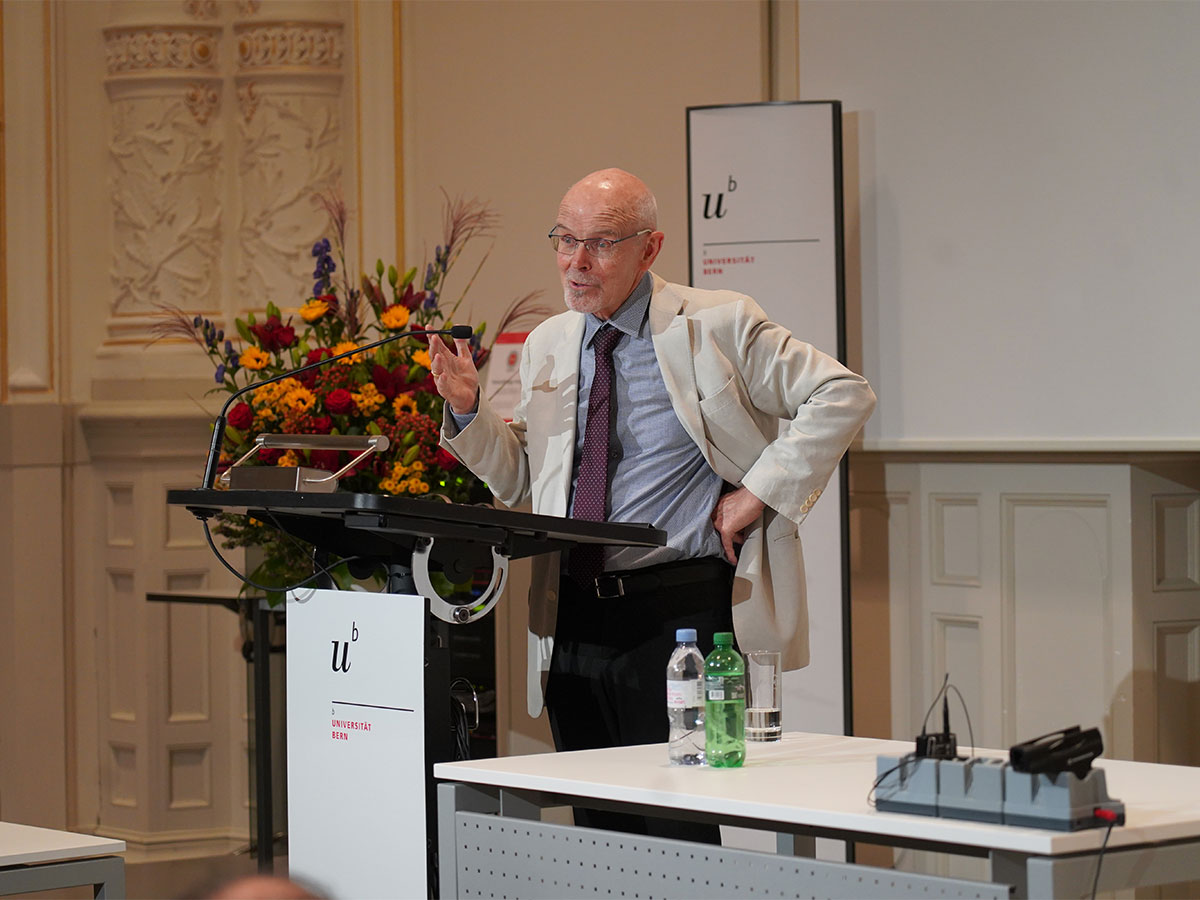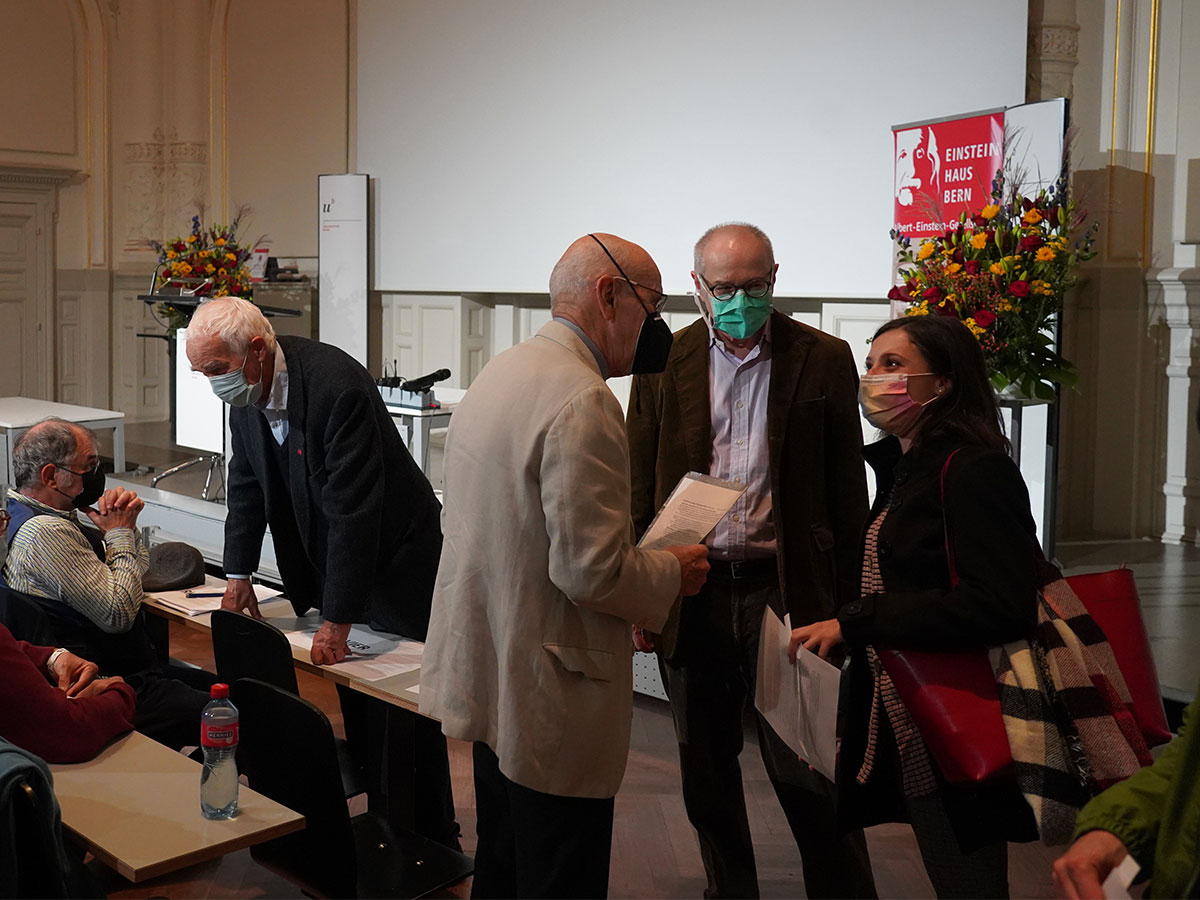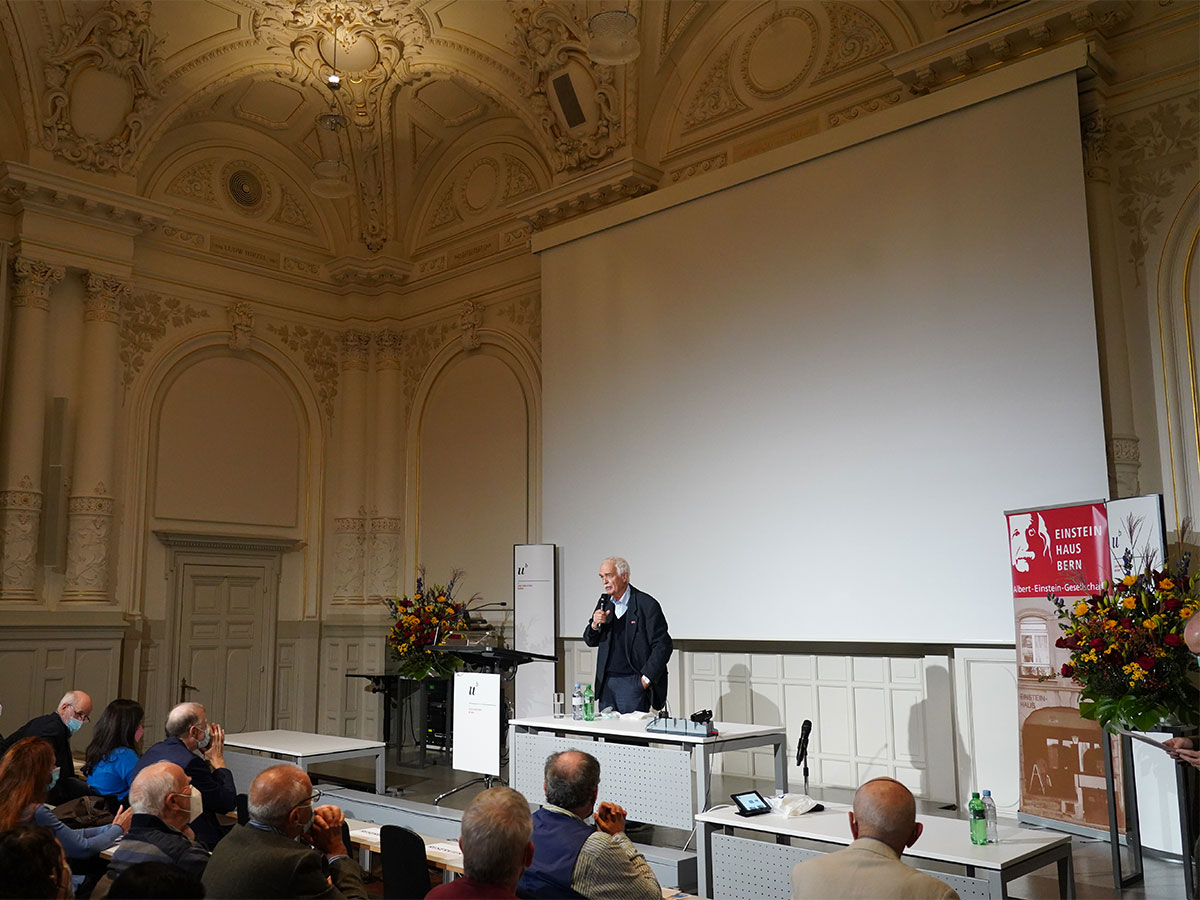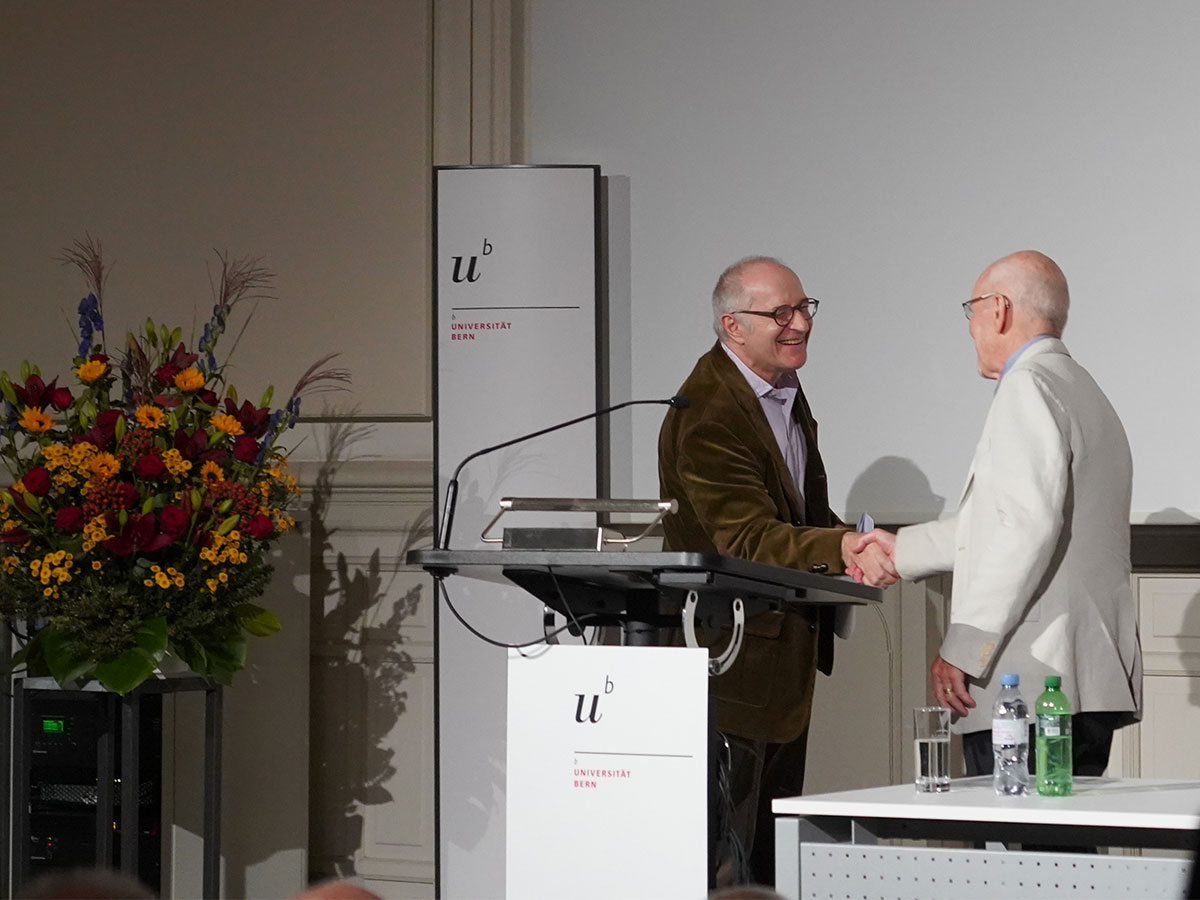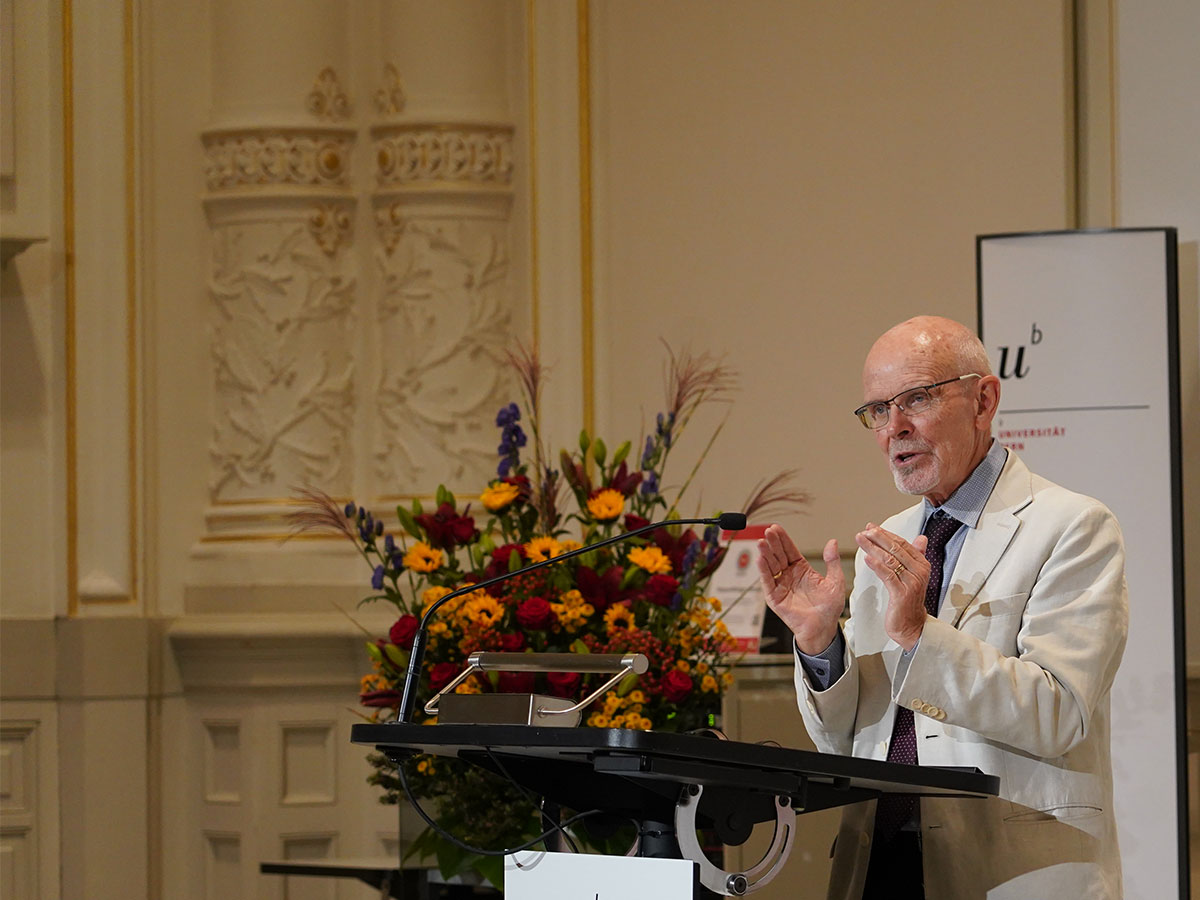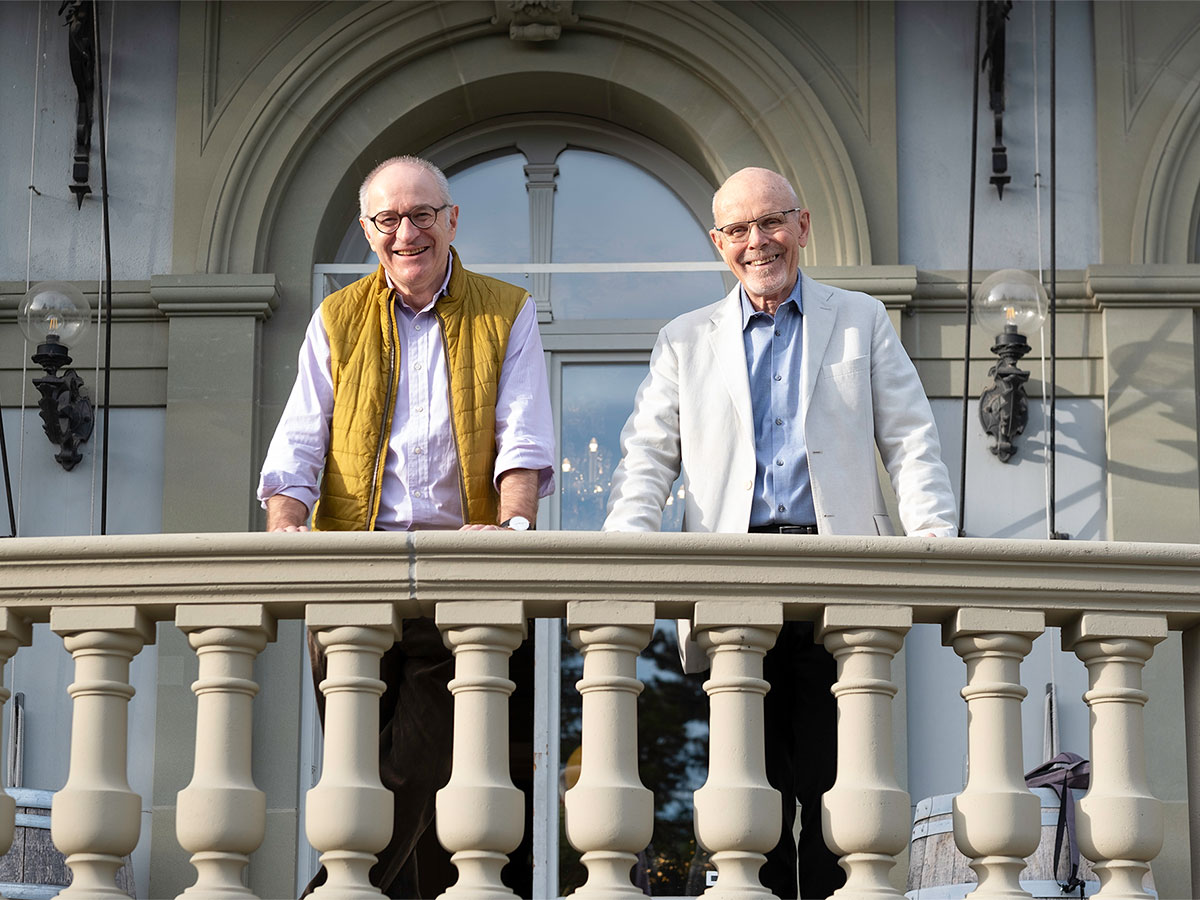2021: Philip Pettit
This year's Einstein Lectures were devoted to the question of the preconditions and development of human thought and social action. The renowned Irish-Australian philosopher Philip Pettit dealt with the social nature of our intellectual life on three October evenings.
Philip Pettit, born and raised in Ireland in 1945, is Laurance S. Rockefeller University Professor of Politics and Human Values at Princeton University, USA, and Distinguished University Professor of Philosophy at the Australian National University.
Philip Pettit works in the area of moral and political theory and on questions of philosophy of mind and metaphysics. He is the author of numerous books that have been translated into many languages. He also served as an advisor to the Spanish government under José Luis Rodríguez Zapatero.

At the invitation of the Albert Einstein Society and the University of Bern, Philip Pettit gave three lectures in the main building of the University of Bern:
Video Lecture 1: A Social Genealogy of Human Mind
Video Lecture 2: Consciousness and the Capacity to Reason
Video Lecture 3: Responsibility and the Capacity to Commit
Article in the online magazine "uniaktuell" (in German)
Eine (schöne) Geschichte des menschlichen Geistes
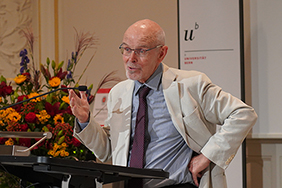
Was macht den Mensch zum Menschen? Wohl ganz einfach: dass er fähig ist, sich diese Frage zu stellen. Aber wie kam es dazu, dass er zu so einem mit Geist ausgestatteten Wesen wurde? Philip Pettit, der dieses Jahr die Einstein Lectures hält, versucht als Philosoph darauf eine Antwort zu geben, mit den Mitteln eines – von Einstein ja auch sehr geliebten – Gedankenexperiments.
Picture gallery of Einstein Lectures 2021
